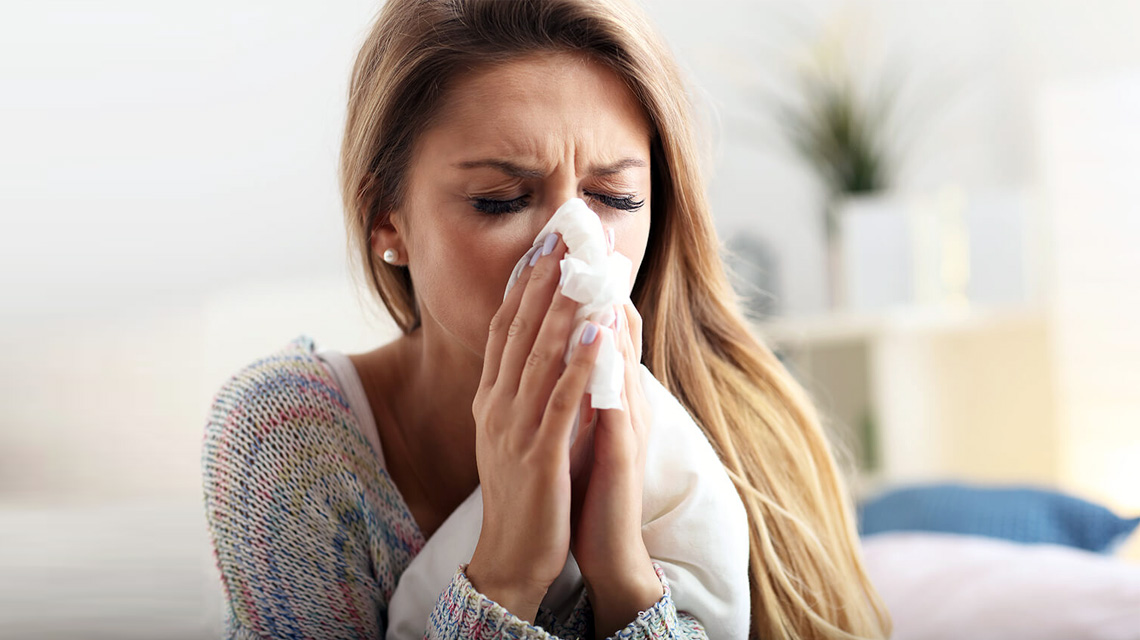Types of Antihistamines Available for Allergy
By Charlie ParsonsMay 10, 20211519

An allergic person may suffer from various allergic symptoms such as nasal congestion, sneezing, and itchy skin. Allergy is a sudden evoke of the immune response against a non-harmful allergen, such as dust, pollen, and food. Generally, people survive with allergies life-long. However, one can control allergies with medicines such as antihistamines. These medicines are widely recommended and help to ease allergic symptoms instantly.
Antihistamines are a class of medications that controls allergies. These works to control histamine, which is a chemical created by our body to stimulate the immune system. Antihistamines work well for several allergies, such as pollen and other allergens. They are also used to treat a variety of other health disorders such as stomach problems, colds, anxiety, and more.
Common Allergy Triggers
- Airborne allergen triggers: pollen, animal dander, dust mites, and mold
- Food allergen triggers: specifically peanuts, tree nuts, wheat, soy, fish, shellfish, eggs, and milk
- Insect stings: bee stings and wasp stings
- Medications: penicillin and penicillin-based antibiotics
Complications Caused By Allergy
Allergy can cause various symptoms, and these symptoms start mild; but, if not treated soon, allergy symptoms can worsen immediately. It can be dangerous and may lead to fatal health emergency such as:
Anaphylaxis: Those who suffer from severe allergic reactions, and then they are at risk of anaphylaxis. One can suffer from anaphylaxis by some triggers such as Foods, medications, and insect stings.
Asthma: If you are suffering from allergic asthma, you may suffer from asthma-like symptoms. The immune system triggered affects the airways and breathing. The airway is narrowed down due to the sudden triggered immune system. In many cases, asthma is triggered by environmental factors such as dust and pollen.
Sinusitis and ear or lung infection: People who suffer from hay fever and allergic asthma are at a higher risk of such infections.
Types of Antihistamines Available for Allergy
- First Generation Antihistamine
As the name suggests, the first-generation antihistamine was the first line of medicines for allergy that got approval from the Food and Drug Administration (FDA). They began to be approved in the USA 1930s are widely recommended even today. These medicines efficiently work on histamine receptors in the brain and spinal cord as well as some other receptors. These first-generation antihistamines are able the blood and brain barrier; therefore, it causes drowsiness.
- Second-Generation Antihistamines
Second-generation antihistamines were approved by the Food and Drug Administration (FDA) in the late 1980s. It came into the market years later first-generation antihistamines. Second-generation antihistamines work the exact opposite of first-gen drugs. They do not cross the blood-brain barrier severely like first-generation antihistamines. Therefore, the side effects are mild. Second-generation antihistamines are considered safe compared to first-generation antihistamines. They do not cause drowsiness and interacts with fewer medications.
- Common over-the-counter antihistamines
People can purchase any antihistamines from local drugstores or online pharmacies. They are available in different forms, including tablets, gel capsules, nasal sprays, and eye drops.
Types of over-the-counter (OTC) antihistamines are as follows:
- Benadryl
- Chlor-Trimeton
- Claritin
- Allegra
- Tavist
- Zyrtec
If you want, you can consult your health professional before taking OTC anti-histamine medicines.
- Prescription-based antihistamines
Some antihistamines are available in the market, which is prescription-based. You can consult a licensed healthcare professional to get the prescription. Antihistamines that are prescription-based may contain potent inactive ingredients than other OTC medicines. Such antihistamines may be prescription-based only because of the risk of severe side effects.
Examples of prescription-based antihistamines are as follows:
- azelastine (Astelin, Astepro, Optivar)
- carbinoxamine (Pelagic)
- desloratadine (Clarinex)
- hydroxyzine (Atarax, Vistaril)
- levocetirizine (Xyzal)
- promethazine (Phenergan)
What Antihistamine is Right for you?
Various brands of antihistamines are available that works to control mild to moderate symptoms. Some anti-histamine only work four to six hours, whereas some may work for 12 to 24 hours. Some meds come in a combination of decongestant, a medicine that dries up your nasal passages.
Ask your health professional what type of antihistamine and dosage will work for you. You can also ask your doctor regarding its dosage. Or ask your pharmacist in case of queries. Remember to avoid alcohol consumption after taking this drug as it may cause drowsiness.
How to Take Antihistamines?
The dosage of antihistamines depends upon the type of symptoms. Here are some tips:
- You may take them every day, to prevent symptoms
- Take when symptoms occur
- Before you get exposed to things that cause allergies, such as pet dander or certain plants
- Symptoms are worse from 4 a.m. to 6 a.m. for some people. Taking antihistamines before going to bed will help to control allergies.
Prevention of allergies
Preventative measures of allergies straight depend upon what type of allergy do you have. Here are some general measures include the following:
- Prevent the known allergy triggers
Even if you are taking antihistamines to control your usual allergy symptoms, try to avoid these triggers. If, for example, you are allergic to pollen, stay indoors when the weather is windy or if there is too much dust outside. If you are allergic to dust mites, vacuum your bed often, clean beddings to avoid mites.
If you are unaware of what causes your allergy, then try tracking when you get symptoms. When trying to identify what is the cause behind the symptoms you get, track your activities and what you eat. It will help you to track what allergy you have. It might help you and your doctor to identify triggers.
- Wear a medical alert bracelet
For a person suffering from a severe allergic reaction, a medical alert bracelet (or necklace) alerts you if you have a serious allergic reaction. In case you react, you will be able to take emergency help.